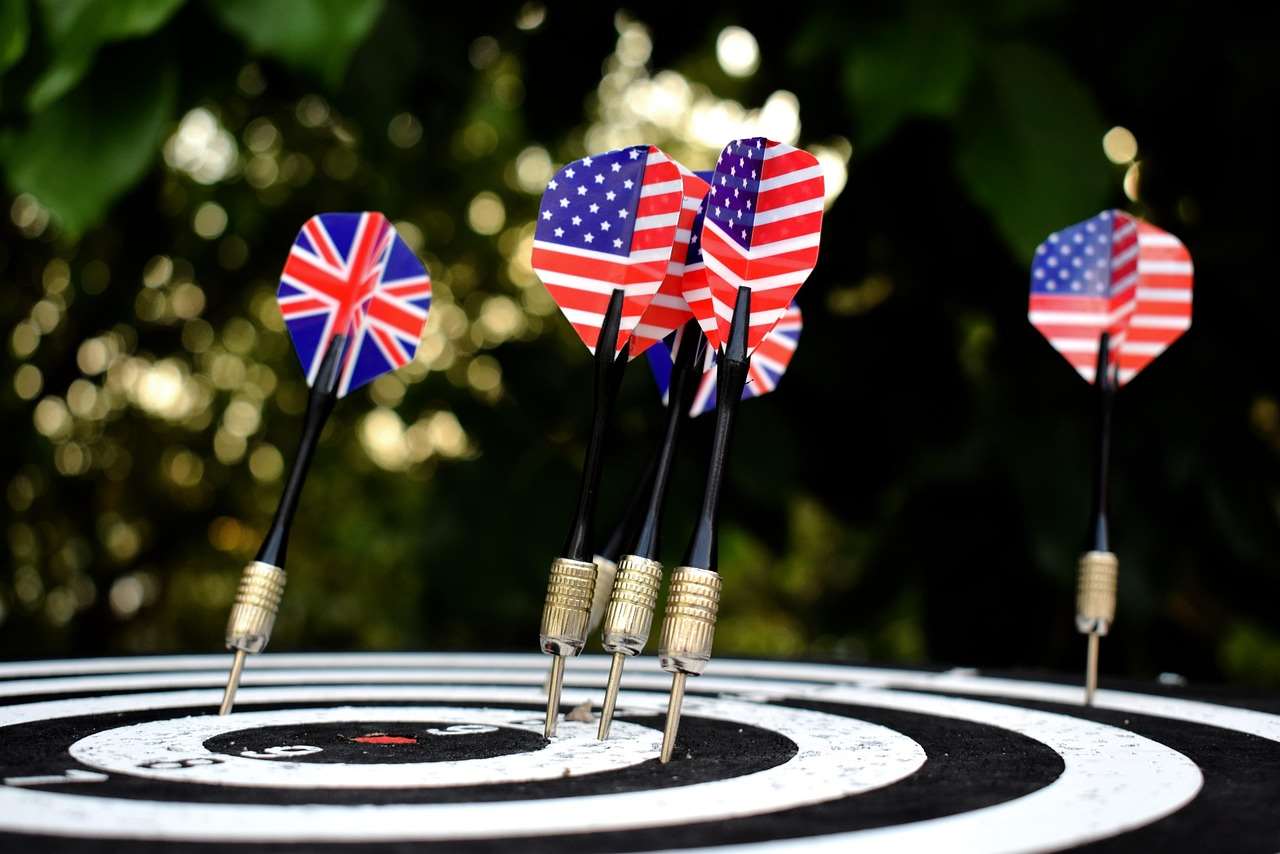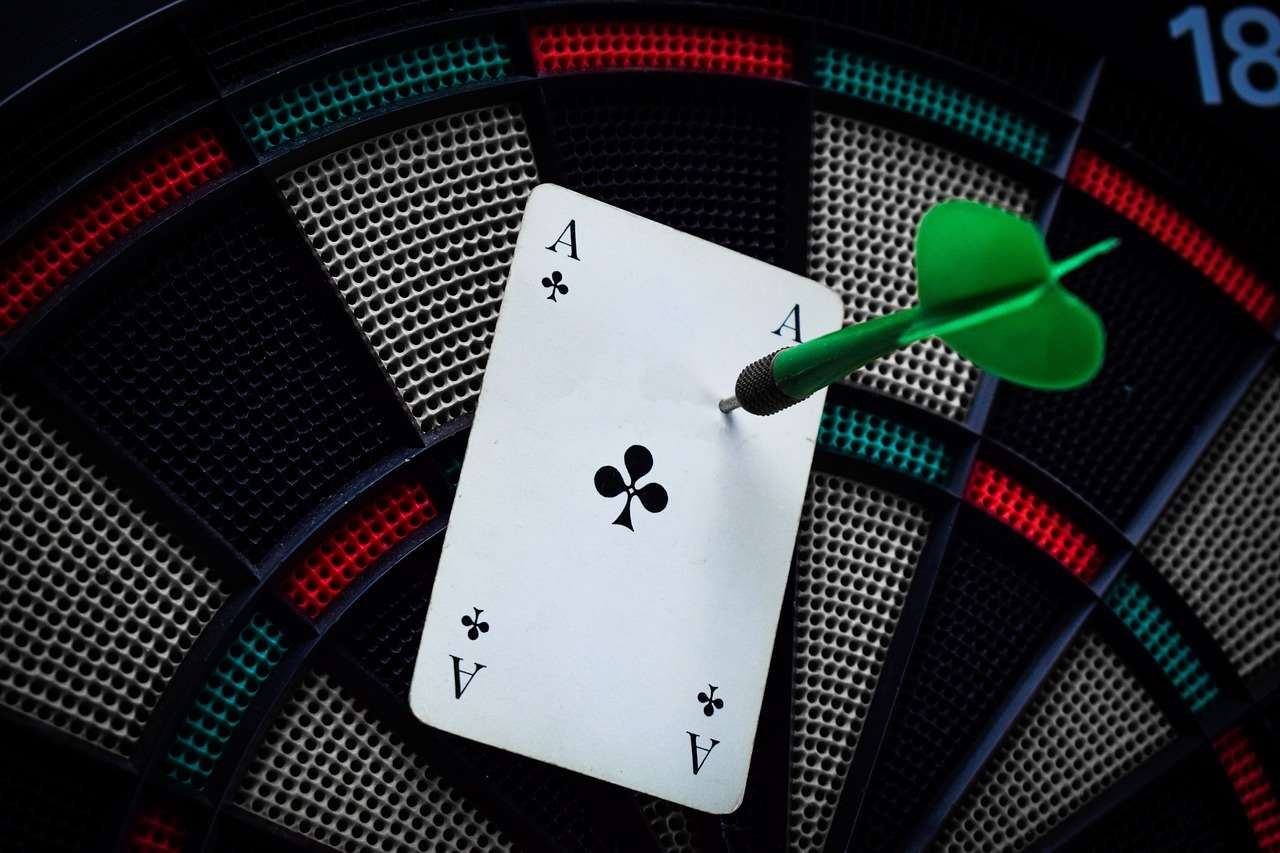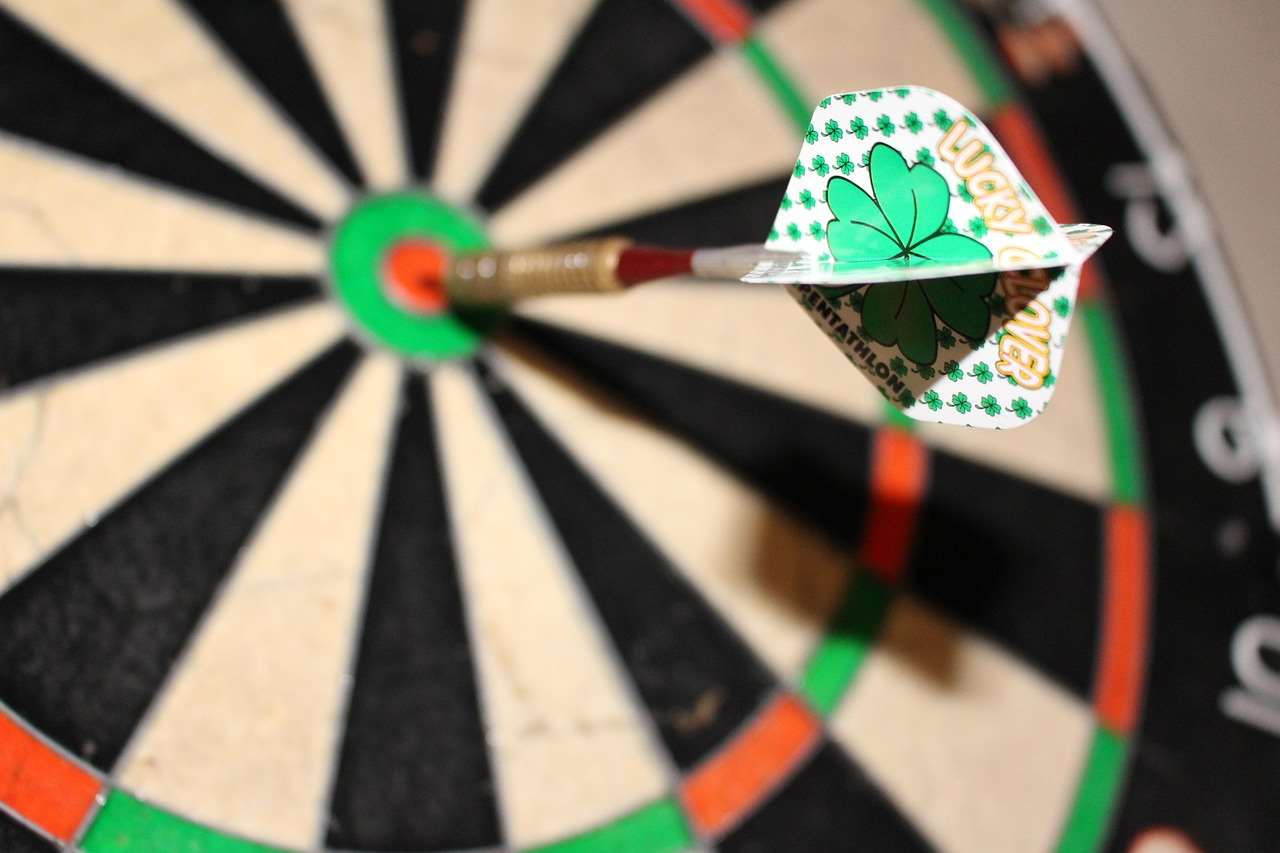Coaching during a darts match, while generally permitted outside official competition, can quickly lead to darts fouls in professional settings if it crosses the line into interference. Understanding the specific regulations and boundaries is crucial to avoid penalties; this article will explore the nuances of what constitutes darts fouls related to coaching during a match, including examples, preventative measures, and the potential consequences.
⚠️ Still Using Pen & Paper (or a Chalkboard)?! ⚠️
Step into the future! The Dart Counter App handles all the scoring, suggests checkouts, and tracks your stats automatically. It's easier than you think!
Try the Smart Dart Counter App FREE!Ready for an upgrade? Click above!
Understanding Darts Fouls Related to Coaching During a Match
The question of what constitutes permissible coaching versus an illegal intervention is a complex one in the world of professional darts. While some forms of encouragement and pre-match strategy discussions are acceptable, any form of direct, real-time coaching during active play can result in penalties. This section will delve into the specific rules and regulations surrounding coaching to clarify what actions are considered darts fouls.

In most professional darts tournaments, the rules explicitly prohibit any form of communication between a player and their coach (or any other individual) during a leg or match. This restriction is designed to ensure fair play and prevent one player from gaining an unfair advantage. Breaching this rule results in immediate penalties, which can range from warnings to the forfeiture of a leg or even the entire match. Even seemingly innocuous actions, such as a coach signaling a specific number to aim for, can be interpreted as illegal coaching.
Examples of Unacceptable Coaching Practices
- Verbal instructions during a player’s throw.
- Non-verbal signals indicating which segment of the board to target.
- Providing statistical analysis or tactical advice between throws.
- Using electronic devices to communicate with the player during the match.
It’s important to note that the specific interpretation of these rules can vary slightly depending on the tournament organizer and the specific rulebook in use. Therefore, players and coaches must familiarize themselves with the specific regulations of each event before competing.
Permitted vs. Prohibited Coaching: A Fine Line
Distinguishing between acceptable pre-match preparation and prohibited in-match coaching can be tricky. While real-time guidance during a match is strictly forbidden, certain activities fall into a gray area. This section will explore these nuances and provide clarity on what constitutes acceptable behavior.

Acceptable pre-match activities generally include strategy discussions, mental preparation exercises, and technical adjustments to equipment. Coaches can work with players to develop a game plan, analyze their opponent’s strengths and weaknesses, and provide support and encouragement. This preparation is deemed acceptable because it occurs outside the immediate context of live play and doesn’t provide an unfair advantage during the match itself. Consider reading Basic Darts Fundamentals for Beginners to improve your core game and form a basis for coaching strategies.
However, the line is crossed when these activities transition into direct intervention during the match. For example, a coach repeatedly making eye contact and subtly gesturing after each throw could be interpreted as providing prohibited feedback. Even seemingly innocent gestures can be misconstrued by officials, leading to accusations of illegal coaching. It’s crucial to maintain a professional and neutral demeanor during the match to avoid any ambiguity.
Factors Influencing the Interpretation of Coaching Rules
- The specific wording of the tournament rulebook.
- The discretion of the tournament officials.
- The perceived intent of the coach’s actions.
- The context of the situation.
Ultimately, the best approach is to err on the side of caution and avoid any actions that could be interpreted as coaching during the match. Clear communication with tournament officials beforehand can also help to clarify any potential ambiguities and prevent misunderstandings.
Consequences of Darts Fouls Related to Coaching During a Match
The penalties for darts fouls related to coaching during a match can be severe, potentially impacting a player’s performance and even their overall standing in a tournament. Understanding the potential consequences is crucial for both players and coaches to ensure compliance with the rules. This section will outline the various penalties that can be imposed, ranging from warnings to disqualification.

The severity of the penalty typically depends on the nature and frequency of the infraction. A first offense may result in a verbal warning from the tournament official. However, repeated violations or particularly egregious instances of coaching can lead to more serious consequences, such as the forfeiture of a leg or even the entire match. In extreme cases, a player could face suspension from future tournaments.
Types of Penalties for Coaching Fouls
- Verbal warning.
- Forfeiture of a throw.
- Forfeiture of a leg.
- Forfeiture of the match.
- Suspension from future tournaments.
It’s important to remember that the tournament official has the final say in determining the appropriate penalty. Their decision is usually based on their interpretation of the rules, the evidence presented, and the overall circumstances of the situation. Players have the right to appeal the official’s decision, but the process can be lengthy and complex. It is crucial to avoid any situations that could lead to accusations of illegal coaching by adhering to the rules and regulations.
Preventative Measures to Avoid Coaching Fouls
The best way to avoid darts fouls related to coaching during a match is to take proactive measures to ensure compliance with the rules. This section will provide practical tips and strategies for players and coaches to minimize the risk of penalties and maintain a fair and ethical competitive environment. Establishing clear communication protocols and understanding the nuances of permitted and prohibited actions are key.

Firstly, ensure that both the player and the coach thoroughly understand the specific rules and regulations of the tournament before competing. This includes reviewing the rulebook, attending pre-tournament briefings, and asking clarifying questions to tournament officials. By having a clear understanding of the boundaries, you can minimize the risk of unintentional violations.
Secondly, establish clear communication protocols between the player and the coach. This may involve agreeing on specific signals or cues that can be used outside of active play to convey information or provide encouragement. However, it’s crucial to ensure that these signals are subtle and cannot be interpreted as providing direct tactical advice during the match. A good starting point for communication strategies can be found in understanding adapting darts rules for beginners.
Practical Tips for Avoiding Coaching Fouls
- Review the tournament rulebook carefully.
- Attend pre-tournament briefings and ask clarifying questions.
- Establish clear communication protocols with the coach.
- Maintain a professional and neutral demeanor during the match.
- Avoid any actions that could be interpreted as coaching.
Finally, consider seeking advice from experienced players or coaches who have a proven track record of adhering to the rules and regulations. Their insights and guidance can be invaluable in navigating the complex world of professional darts and avoiding potential pitfalls. Remember that maintaining a reputation for fair play and ethical conduct is essential for long-term success in the sport. Focus on core skills and techniques for a start with the simplified 501 game rules for novice players. Consider how handicaps can make games more fair how to make darts fairer with handicap rules.
Case Studies: Examples of Coaching Fouls and Their Consequences
Analyzing real-world examples of darts fouls related to coaching during a match can provide valuable insights into the practical application of the rules and the potential consequences of violations. This section will examine several hypothetical case studies to illustrate the nuances of coaching regulations and highlight the importance of adhering to the rules. These studies will focus on common scenarios and the outcomes of certain behaviours and their interpretation.

Case Study 1: The Subtle Signal: A coach is observed repeatedly making eye contact with their player and subtly tapping their fingers after each throw. While the coach claims they are simply offering encouragement, the tournament official interprets the finger-tapping as a signal indicating which number to aim for. The player receives a verbal warning, and the coach is instructed to refrain from any further gestures.
Case Study 2: The Electronic Device: A player is caught using a smart watch to receive messages from their coach during a break in the match. The messages contain statistical analysis and tactical advice. The player is immediately disqualified from the tournament for violating the rules regarding electronic devices.
Case Study 3: The Verbal Instruction: A coach is overheard shouting instructions to their player during a crucial leg. The opponent protests, and the tournament official investigates the incident. The coach admits to providing verbal guidance, and the player is penalized with the forfeiture of a throw.
These case studies demonstrate the range of potential violations and the varying degrees of penalties that can be imposed. They underscore the importance of understanding the rules, adhering to ethical conduct, and avoiding any actions that could be interpreted as illegal coaching. Awareness and a proactive approach are key to ensuring a fair and compliant playing environment.
Conclusion
Understanding the complexities surrounding darts fouls related to coaching during a match is crucial for players and coaches alike. While encouragement and pre-match preparation are generally acceptable, any form of direct, real-time coaching during active play can lead to penalties. By familiarizing themselves with the specific tournament rules, establishing clear communication protocols, and maintaining a professional demeanor, players and coaches can minimize the risk of violations and ensure a fair competitive environment. Remember that a reputation for ethical conduct and adherence to the rules is essential for long-term success in the sport. To further enhance your knowledge and understanding of darts regulations, consider exploring official tournament rulebooks and seeking guidance from experienced professionals. Invest time in understanding the alternative darts rules for home play for casual settings.
Hi, I’m Dieter, and I created Dartcounter (Dartcounterapp.com). My motivation wasn’t being a darts expert – quite the opposite! When I first started playing, I loved the game but found keeping accurate scores and tracking stats difficult and distracting.
I figured I couldn’t be the only one struggling with this. So, I decided to build a solution: an easy-to-use application that everyone, no matter their experience level, could use to manage scoring effortlessly.
My goal for Dartcounter was simple: let the app handle the numbers – the scoring, the averages, the stats, even checkout suggestions – so players could focus purely on their throw and enjoying the game. It began as a way to solve my own beginner’s problem, and I’m thrilled it has grown into a helpful tool for the wider darts community.